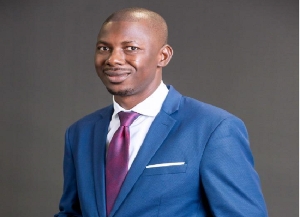Health News of Tuesday, 6 May 2014
Source: GNA
Investment in diagnosis tools crucial for disease remedies
The Director of Nogouchi Memorial Institute for Medical Research (NMMIR) says the country needs to invest in diagnostic tools to find remedies for diseases that afflict the people.
Professor Kwadwo Koram NMMIR Director emphasised the need for investment in diagnostic tools, which should be spread evenly across the country especially the rural areas where diseases such as soil transmitted Helminths and their co-infection is on the ascendency.
The NMMIR Director made this known at a “RELACS Network on Diagnosis of Helminths and Co-infections,” workshop in Accra, which brought together young scientists from Ghana, Gabon, Mali, Benin and France to share experiences and boost technological transfer to standardise research protocols.
“Such face to face interactions are healthy for young scientist to plan and move the continent forward,” Prof Koram said.
Prof Ogobara Doumbo, Project Facilitator of RELACS in an interview with Ghana News Agency said the network seeks to build scientific evidence to support strategies to control helminths diseases in Africa.
The network, which has a unique opportunity to facilitate mobility between scientists, has a three -year duration and each year has a scientific evaluation of progress.
He said parasitic diseases pose major obstacles to health growth and socio-economic development in developing countries.
Prof Doumbo noted that parasitic diseases such as malaria are life threatening, as well as the leading cause of mortality in endemic countries and more severe to some risky groups like pregnant women.
The RELACS network is a scientific network of scientists from Anglophone and Francophone countries with support from France’s Institute of Research Development. It works together to fight helminths diseases and their coinfections on the continent.
Soil-transmitted helminth infections are among the most common infections worldwide and affect the poorest and most deprived communities.
They are transmitted by eggs present in human faeces which in turn contaminate soil in areas where sanitation is poor.
The main species that infect people are the roundworm (Ascaris lumbricoides), the whipworm (Trichuris trichiura) and the hookworms (Necator americanus and Ancylostoma duodenale.
Soil-transmitted helminth infections are widely distributed in all WHO Regions. Intestinal worms produce a wide range of symptoms including intestinal manifestations (diarrhoea, abdominal pain), general malaise and weakness.
Hookworms cause chronic intestinal blood loss that result in anaemia and other diseases such as Malaria, TB and HIV, allergies.
Latest WHO estimates indicate that more than 880 million children are in need of treatment for these parasites.
It is for this reason that RELACS sourced funding to address the problem.










